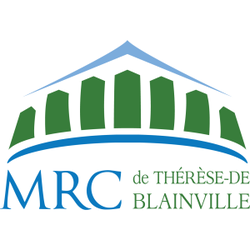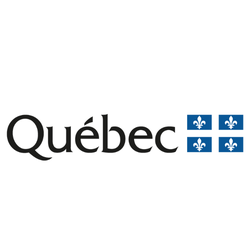
Open
MRC de Thérèse de Blainville — FLI/FLS
Last Update: October 24, 2025
QC, Canada
Financial support for business development in Thérèse-De Blainville
Loans and Capital investments
At a glance
Funding available
Financing goals
Buying or selling a company
Optimize production processes
Renovate your business/factory
Eligible Funding
- Maximum amount : 150,000 $
- Up to 50% of project cost
Timeline
- Open Date : October 1, 2023
Eligible candidates
Eligible Industries
- Agriculture, forestry, fishing and hunting
- Manufacturing
- Information and cultural industries
- Professional, scientific and technical services
- Arts, entertainment and recreation
- Accommodation and food services
- Other services (except public administration)
Location
- Thérèse-De Blainville
Legal structures
- Non-profit
- Public or Parapublic institution
- For-profit business
- Social economy enterprise
- Non-financial cooperative
Annual revenue
- All revenue ranges
Organisation size
- All organization sizes
Audience
- Startups
Non-profit candidates
Sector of operation
- Economic, Social and Community Development
- Employment and Training
- Business Associations
Target groups
- Business owners / entrepreneurs
- Nonprofits / charities
Revenue structures
- Mixed revenue (50%+ earned)
- Fee-for-service model
Scope
- Regional
Overview
The FLI/FLS program of the MRC de Thérèse-De Blainville provides financial support to businesses for start-up, expansion, acquisition, succession, and organizational transformation projects, with funding amounts up to $150,000 per recipient in a 12-month period (and up to $300,000 cumulatively outstanding). The program aims to foster economic development and job creation in the region by supporting eligible activities in manufacturing, information technology, agro-food transformation, business services, and other innovative sectors.
Activities funded
- Starting up new businesses that are in the commercialization phase.
- Business succession projects where a new owner or group acquires at least 25% of an existing company to ensure its continued operation.
- Acquisition of existing businesses or their assets by eligible companies.
- Improving business productivity, implementing digital transformations, or adopting sustainable organizational practices.
- Expanding business operations, including launching new products or services, entering new markets, or supporting export activities.
Examples of admissible projects:
$ 125,000
Business succession for local printing company with digital upgrade
$ 129,000
Acquisition of refrigerated trucks for local produce delivery
$ 108,000
Launch of vegan gourmet ready-to-eat meal production facility
$ 115,000
Digital transformation of a local custom furniture manufacturing
Eligibility
- The business must be legally constituted under Quebec or Canadian law, or be a collective enterprise such as a cooperative or a non-profit organization (OBNL) operating in the social economy with commercial activities.
- The enterprise must operate within the territory of the MRC de Thérèse-De Blainville and have its head office located in Quebec.
- The company must be registered with the Registre des entreprises du Québec (REQ).
- The business must demonstrate economic viability, relevant management experience, and have a clear positive impact on employment and regional economic development.
- The project must be at the commercialization stage or beyond (pre-startup phases are not eligible).
Who is eligible?
- Legally incorporated for-profit companies in Quebec or Canada
- Social economy enterprises (cooperatives and non-profit organizations with commercial activities)
- Manufacturing businesses
- Recreotourism sector enterprises
- Companies in agri-food processing, information technology, or business services with a commercial and industrial character
Who is not eligible
- Companies registered on the Register of Enterprises Ineligible for Public Contracts (RENA), including their subcontractors for the project.
- Businesses that have failed to meet obligations related to previous financial aid from the Ministry or MRC in the past two years.
- State-owned enterprises or companies directly or indirectly controlled by a government (municipal, provincial, or federal) or majority-owned by such entities.
- Companies under bankruptcy protection (Companies’ Creditors Arrangement Act or Bankruptcy and Insolvency Act).
- Businesses involved in sectors such as arms production, fossil fuel extraction and refining (except activities supporting carbon transition), gambling operations, violent games or combat sports involving living beings, sexual exploitation, real estate management and development (except certain projects enhancing tenant living conditions), tobacco or non-approved drug-related industries, and non-authorized recreational or medical cannabis activities.
Eligible expenses
- Additional working capital required for the execution of the project, for up to two years, based on justified and reasonable expenses.
- Capital expenditures strictly and directly tied to the project, such as acquisition of technology, land, buildings, equipment, machinery, or rolling stock, as well as construction, expansion, renovation, or improvement of facilities and premises.
- Professional fees incurred prior to project implementation, including feasibility analyses, external audits, or impact studies.
- Professional fees strictly and directly related to the project, such as technology implementation, equipment and machinery installation, and activities connected to the acquisition, construction, renovation, or improvement of facilities.
- For business succession projects: acquisition costs for company ownership titles (voting shares or units) and assets of the targeted company.
- Professional fees strictly and directly related to the transaction, acquisition, and transfer of business leadership.
Eligible geographic areas
- Businesses operating within the territory of the MRC de Thérèse-De Blainville, Quebec.
- Companies with their head office located in Quebec.
Selection criteria
- Economic viability of the business: The project must demonstrate sustainability, profitability, repayment capacity, and strong future prospects.
- Knowledge and experience of the promoters: Promoters must show relevant industry experience and management skills, or have access to the necessary internal or external support.
- Environmental and societal impacts: Projects must contribute to the socio-economic and environmental improvement of the MRC territory by implementing sustainable business practices.
- Openness to employees: The company's approach to labor relations and its openness toward workers are considered in the assessment.
- Participation of other financial partners: The involvement of other capital sources, particularly the minimal participation of a financial institution and promoters’ equity contribution, is strongly encouraged.
How to apply
1
Verify eligibility
- Identify your company's eligibility for the FLI/FLS program
- Review the specific criteria for your type of business and project
2
Prepare required documents
- Gather required documents: completed application form, business plan, detailed project description, financial statements for the past three years, interim and projected financial statements, breakdown of project expenses, confirmation of other financial contributions, and any certificates or declarations as applicable
- Ensure all documents meet submission requirements
3
Submit application
- Complete and sign the application form
- Submit the application and all supporting documents to the MRC
4
Await decision
- Wait for the MRC to process and review your application
- Respond to any additional requests or clarifications if needed
Additional information
- The investment policy became effective as of October 1, 2023, replacing previous versions.
- Annual follow-up fees and file opening fees apply, with specific amounts and refund conditions depending on application outcome.
- The policy outlines a formal mechanism for handling requests for exceptions or amendments, subject to administrative approvals.
- Policy changes must be communicated to the Ministry of Economy, Innovation and Energy (MEIE) and Fonds locaux de solidarité FTQ, s.e.c.
Apply to this program
Frequently Asked Questions about the MRC de Thérèse de Blainville — FLI/FLS Program
Here are answers to the most common questions about the MRC de Thérèse de Blainville — FLI/FLS. This section explains what the program is, how much funding is available, eligibility requirements, application deadlines, and other important details to help you determine if this grant is right for your business.
What is the MRC de Thérèse de Blainville — FLI/FLS?
How much funding can be received?
What expenses are eligible under MRC de Thérèse de Blainville — FLI/FLS?
What is the deadline to apply?
Is the MRC de Thérèse de Blainville — FLI/FLS a grant, loan, or tax credit?
Who are the financial supporters of the MRC de Thérèse de Blainville — FLI/FLS?
Who is eligible for the MRC de Thérèse de Blainville — FLI/FLS program?
Who can I contact for more information about the MRC de Thérèse de Blainville — FLI/FLS?
Where is the MRC de Thérèse de Blainville — FLI/FLS available?
Are startups eligible for the MRC de Thérèse de Blainville — FLI/FLS program?
Apply to this program
More programs like this

Grant and FundingClosed
MAPAQ — Food Processing Program — Component 2
Ministry of Agriculture, Fisheries and Food (MAPAQ)Enhancing productivity through food industry automation assistance

Tax CreditsOpen
Research, Innovation and Commercialization Tax Credit (CRIC)
Gouvernement du QuébecRefundable tax credit for Quebec business R&D and precommercialization

Grant and FundingOpen
Support for biofood exports - individual projects
Ministry of Agriculture, Fisheries and Food (MAPAQ)SEB supports Quebec agri-food market expansion outside Quebec

Grant and FundingOpen
ÉcoPerformance — Recommissioning of building mechanical systems
Gouvernement du QuébecFunding to optimize the operation of building mechanical systems

Grant and FundingSuspended
Individual Market Access Support (SIAM)
Aliments du QuébecMarket Access Support for Quebec Food Processors

Grant and FundingClosed
NovaScience Program - Support for projects in scientific culture and innovation
Gouvernement du QuébecNovaScience promotes scientific culture and innovation development

Tax CreditsOpen
Tax holiday for a new business created to commercialize intellectual property
Ministère de l'économie, de l'innovation et de l'énergie du Québec (MEIE)Tax credit for commercialization of intellectual property (IP) in Quebec

Loans and Capital investmentsClosed
Program Supporting the Development of Tourist Attractions — Stream 2
Investissement Québec (IQ)Fund to renovate hotels and create new tourist accommodation facilities in Quebec

Loans and Capital investmentsClosed
Program Supporting the Development of Tourist Attractions — Stream 1
Investissement Québec (IQ)Loans to develop Quebec tourist attractions

Grant and FundingClosed
GHG Challenge Program - Industry
Environnement Québec (MELCC)Supports major industrial projects reducing greenhouse gas emissions
Sign up to our platform to access the MRC de Thérèse de Blainville — FLI/FLS information sheet for free
Get access to 4,000+ programs, practical guides, personalized alerts, and an AI assistant to support your grant applications.